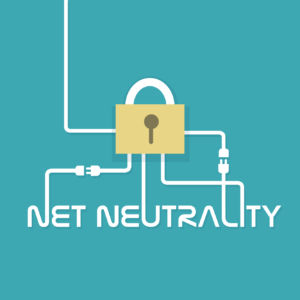A new billboard has gone up in Louisiana targeting Republican US Senator John Kennedy for “voting with Democrats to sell you out to Silicon Valley liberals.” According to the conservatives behind the billboard at the Media Equality Project, it’s “to call attention to a disturbing collaboration between Democratic leaders Nancy Pelosi, Charles Schumer and Senator John Kennedy.”
But interestingly, the group also complains that, by supporting “so-called ‘Net Neutrality,’” Kennedy “sold out Louisianans to the far-left and the political interests of Google and Facebook,” according to Brian Maloney, co-founder of Media Equality Project. “Senator Kennedy should be ashamed that he was too afraid to stand up to Silicon Valley.”

What an interesting line of attack, one that raises the question: Is the Right’s real problem with the actual Net Neutrality regulations, or the liberal-friendly, anti-conservative #BigTech firms who would benefit if they returned?
In theory, the #NetNeutrality debate is pretty simple: Until 2015, the federal government took a “light touch” approach to regulating the internet. Under the Obama administration, #NetNeutrality rules treated the web more like a utility—the old “Ma Bell” telephone company, for example—by classifying internet service providers (ISPs) as Title II common carriers with restrictions on how they could do business.
Ok. When did this go up? Near downtown Baton Rouge. #LaSen #LaGov pic.twitter.com/CP9gFVdBFF
— Julia O'Donoghue (@JSODonoghue) June 16, 2018
The ISPs want the power to prioritize content when internet capacity is tight or even charge content providers for “fast lane” service; and the content makers—Google, Facebook and Amazon—want #NetNeutrality to stop them.
Viewed from a financial standpoint, this is one group of billionaires fighting with another. Writing about the #NetNeutrality fight in Forbes recently, Clyde Wayne Crews Jr.of the conservative Competitive Enterprise Institute observes “It is unclear how tech titans’ supporting net neutrality rules that help them call the shots against ISPs qualifies as ‘level[ing] the playing field away from the big corporations.’”
Ah, but which corporations matters. For years, conservatives and Republicans have bristled at the open partisanship of #BigTech. Jeff Bezos of Amazon also owns the liberal Washington Post newspaper. Facebook’s Mark Zuckerberg is a frequently-rumored future Democratic candidate for president whose company’s policies have been openly hostile to conservative FB users; and Google is a liberal icon of tech industry.
They all love #NetNeutrality and hate Donald Trump—or so many on the Right believe.
So while Republicans may in fact oppose #NetNeutrality on the basis of their free-market principles (“I favor a free and open Internet and I oppose Title II.” – FCC chief Ajit Pai),it can’t help that the ox being gored by ending these federal mandates bleeds deep blue.
When Sen. Kennedy joined Republicans Susan Collins of Maine and Lisa Murkoswski of Alaska to cross over and back the Democrats’ CRA (Congressional Review Act) measure to repeal the FCC’s rollback of #NetNeutrality, they may have thought they were casting a vote about technology. But it could easily become a frontline in the ongoing culture war, with angry Trumpian conservatives demanding the GOP stand up to the media and internet elites they believe oppose them.
Thus far, all the energy has been with the #NetNeutrality opponents. Having gotten their CRA through the Senate, activists are now push for the 218 votes they’ll need in the House. A well-funded grassroots coalition including Fight For The Future and Battle For The Net is organizing protests at the district offices of some 50 Republicans on July 26th, with the message “The Internet is angry!” The pressure is on.
But what happens if Republican House members start seeing billboards in their district like the one targeting Sen. Kennedy and linking them—not just to Schumer and Pelosi—but to Google and Facebook? It won’t be a battle over bandwidth that keeps Republicans on board.

